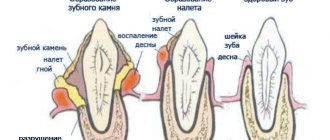One of the most common health problems in cats is associated with infection by various parasites, in particular roundworms. This is one of the most common types of parasites, and almost every pet will get sick from it at least once in its life.
Even pets who do not go outside are not immune from this - roundworm eggs can easily be brought on shoes or unprocessed food.
Fortunately, the prognosis for treating roundworms in cats is favorable, but it all depends on the general condition of the pet and how quickly the disease was detected.
Signs of roundworms
To detect roundworms in your pet’s body, you need to be very attentive to his well-being. Symptoms:
- The cat often licks its anus.
- Nausea.
- Rapid weight loss.
- The belly becomes round.
- The cat constantly coughs and wheezes.
- Brittle wool.
- Periodic convulsions.
- Stomach upset.
Maliciousness
The following are the harmful actions of roundworms:
- Traumatic. Nematodes migrate, damaging the integrity of tissues and organs along the way. Parasites can curl into balls, blocking or tearing the intestines.
- Infectious. Damaged tissues become a nutrient substrate for secondary microflora. Bronchitis occurs most often.
- Toxic. Excrement is an allergen as well as a poison that destroys surrounding textures. The greatest danger is posed by dead, decaying helminths.
Toxocara
Routes of infection
It can become infected in the following ways:
- From contact with a sick pet. Cats suffering from helminthic infestations can carry their eggs on their fur. The main number of eggs accumulates around the anus. If infected cats constantly lick themselves, then in this way they only increase the chances of infecting other pets.
- If insects eat food contaminated with parasites, they become living carriers.
- When a cat is infected with roundworms, she spreads worm eggs throughout her fur, and therefore kittens that drink milk can become infected.
- If you are undergoing treatment in a clinic, then disinfect your home.
Since the cat can pick up the eggs again, and then she will get toxocariasis again.
- When your cat often walks outside on his own, he is more susceptible to infection. This is due to the fact that she can eat grass, contaminated food scraps, and so on. But also infected cats should not be walked, as they may shit, and therefore they leave worm eggs. This way the parasites will spread further.
How to make a diagnosis?
It is quite difficult even for an experienced veterinarian to determine offhand that a cat has worms. He can only assume from some signs that the animal is infected. To make an accurate diagnosis, it is necessary to conduct a scatological examination of stool to detect Toxocara eggs.
It is advisable to conduct a series (2-3) of consecutive studies with an interval of 7-10 days, because the first negative result does not guarantee the absence of helminths. It is quite possible that at the time of collection of samples the females either did not release eggs or had not reached sexual maturity.
It is better to collect feces in the morning - the chance of finding roundworm eggs in this case is much higher.
In real life, diagnosis through a laboratory is carried out in the rarest cases; usually the doctor suggests immediately carrying out preventive deworming so as not to fool anyone. Perhaps this is the right decision, although the unplanned use of antiparasitic drugs is not the best idea, since they have a poisonous effect not only on worms, but also, to some extent, on the cat’s body.
By the way, such a spontaneous test is a unique method for diagnosing intestinal parasites. In 90% of cases, it gives a true result about the presence or absence of helminths, because dead worms are usually found in feces the next day if there has been an infestation. Some experts stubbornly argue that modern drugs dissolve helminths and their detection in feces after deworming is unrealistic. One can argue with this and, most likely, with this answer some veterinarians protect themselves from unnecessary questions. (By the way, the main active ingredients in most angelmintics have not changed for twenty years, or even more.)
Life cycle
On average, it takes approximately 14-20 days from egg to maturity. The roundworm Toxocara cati is considered the most common; below we will talk in more detail about their life cycle.
The definitive host plays a significant role for these intestinal worms. In intermediate stages, roundworms can live in beetles, mice, grasshoppers and chickens.
When the eggs enter the gastrointestinal tract, larvae then develop from them. Their size usually does not exceed half a millimeter. After this, they independently penetrate the bloodstream, so the infection spreads throughout the body.
The body tries in different ways to remove parasites at the development stage, so a large amount of sputum is formed. But this method of struggle does not help, and a large amount of sputum causes the pet to have difficulty breathing.
In the cavity of the small intestine, the parasites already develop into a sexually mature individual. When roundworms develop, they are capable of releasing an incredibly large number of eggs into the animal's feces. Scientists have calculated that approximately 1 g of feces can contain up to 120 thousand future worms.
Causes
The causes of roundworms in cats are:
- Sick animals.
- Ingestion of contaminated water, sick insects - flies, fleas, grasshoppers, etc.
- Eating food infested with larvae, raw or poorly cooked meat of infected animals, fish.
- Licking paws after walking down the street or visiting a public litter box.
- Eating infected mice.
Infection of kittens occurs either in the womb, when larvae migrating through her body penetrate the placental membrane, or through mother's milk.
If milk containing larvae is ingested, the prepatent period lasts 21-30 days. When swallowing an egg, this period lasts 58 days, and when eating a rodent, it lasts 21 days.
Worms developing in the body of a small kitten cause severe intoxication, clog the intestinal loops, and sometimes break through its thin walls. These factors lead to the inevitable death of kittens.
How to treat?
Kanikvantel plus
The drug is considered the best antiparasitic drug at this time. There are no side effects with this medicine, but it is highly effective against different types of worms.
The product is also allowed for kittens who have reached 3 weeks of age.
Prazitel
For the treatment of kittens, the drug is mainly used in the form of a suspension. And adults are given the same drug in tablet form to remove worms. If there are a lot of parasites in the body, then the course of treatment should be repeated after 2 weeks.
Dironet
Dironet suspension is effective against roundworms and tapeworms. It has a fishy smell, so many cats enjoy licking it off. The dosage of the suspension is calculated from the proportion of 1 ml per 1 kg of pet’s weight.
Another effective drug is Drontal.
The danger of toxocariasis for animals and humans
Typically, toxocariasis is easy to treat, it all depends on the general condition of the animal and the stage of the disease.
Roundworms are most dangerous for small kittens, which can even die if the disease is not treated in a timely manner. But for most adult cats with normal immunity, toxocariasis is not life-threatening.
Most owners who have discovered parasites in their pet are wondering whether feline roundworms are transmitted to humans.
Unfortunately, most types of this parasite are dangerous not only for cats, but also for other four-legged pets, as well as for humans. Therefore, if roundworms are found in a cat, the whole family will have to give anthelmintic drugs.
Possible complications
Treatment should always be completed, as otherwise the parasites can multiply again in the body. Worm attacks greatly weaken the body, so the following complications may occur:
- Everything that the cat eats while eating is not available to her. This is due to the fact that all nutrients are used to support the vital functions of parasites. Therefore, the pet will be sorely lacking proteins, vitamins and other nutrients. If the infection is not detected in a timely manner, it can even lead to death.
- If a huge accumulation of worms appears in the intestines, the passage may close completely. In this case, feces will not be able to come out, and then the intestine may even rupture.
- An infected cat's immunity is greatly reduced. Therefore, any pathologies become dangerous for her, including viruses and various infections.
- Roundworms release many toxic substances during their life. As a result, the metabolism in the fluffy's body is disrupted.
Symptoms
Weak infestation (2-3 worms) is characterized by the cat losing weight against the background of increased appetite. Small kittens suffer from pneumonia, diarrhea, exhaustion, and fever. The abdomen swells, the mucous membranes become pale, which indicates anemia, the kitten is stunted and looks very thin.
The following symptoms may also be present:
- Vomit.
- Fidgeting with the anus on the carpet.
- Disheveled wool.
- Souring of the corners of the eyes.
- Cough.
- Blood in the stool.
- Cramps.
Parasites living in the intestines lead to the loss of most nutrients, gradually depleting the cat's body. If the infestation is severe, she may completely refuse to eat.
Prevention
- The easiest way is to prevent infection, because then you won’t have to fight roundworms. Therefore, once every 2-3 months you need to deworm your pet with special preparations. Before this procedure, it is important to consult with an experienced veterinarian.
- Always inspect your pet and occasionally remove its feces. After all, this is the only way to be sure whether your pet is infected with parasites or not.
To avoid many problems, you should make it a habit to wash your hands thoroughly with soap after handling pets. Good health to you and your furry!
Is there immunity against worms?
It is quite difficult to answer this question. Yes, there is a certain immunity in a number of animals, but such immunity is considered non-sterile, and the body cannot completely protect itself from worms.
When eggs enter the intestines, protective internal forces begin to work actively, and the stronger they are, the worse the living conditions for the parasite will be and the faster it will naturally leave its owner.
The main condition for natural control is excellent living conditions, proper nutrition and excellent health of the pet. But still, great attention is paid to preventing invasion.
Diagnostics
Clinical symptoms suggest a helminthic disease. Confirmation of the diagnosis is carried out by examining the cat's feces for eggworms. A week later, the tests need to be repeated. Symptoms of infestation can be caused by immature helminths, resulting in a false negative result.
This procedure is cumbersome and not very informative; it is difficult to guess the time of egg laying, so diagnosis is practiced by treatment. After applying the anthelmintic, the cat’s feces are visually examined and dead roundworms are found or not.
Other measures to prevent ascariasis
Remove feces from your cat's litter box daily. Rinse the tray thoroughly using any chlorine bleach or other disinfectant. Rinse the tray very thoroughly under running water, as these drugs are harmful to the cat's health. Surfaces that may be contaminated with roundworm eggs are also thoroughly treated with aqueous bleach solutions. Always wash your hands after handling your cat's litter box. Remember that some types of parasites are transmitted to humans!
It is very important to prevent children from coming into contact with cat feces , for which children's playgrounds adjacent to the house must be regularly cleaned, sandboxes must be carefully covered with film or locked. Remember that ascaris eggs, if they are in the soil, remain dangerous for people and pets for several years.
Strict hygiene is especially important for children. Do not allow children to play in potentially contaminated areas . Any sandbox that does not close is a breeding ground for worms. In addition, if you have a suburban area, be sure to have fences of sufficient height. They will not only protect you from curious neighbors, but will also prevent homeless, potentially infected animals from entering the territory.
Poisoning
If the medicine was given strictly according to the instructions, and the cat became ill, this indicates severe infestation. Dying parasites release toxic metabolites. In addition to this reason, toxicosis can occur as a result of consuming counterfeit products or personal intolerance. Characteristic symptoms of poisoning are muscle tremors, intermittent breathing, and vomiting.
If it is not possible to seek veterinary help, the felinologist uses detoxification agents:
- inside – Enterosgel, Smecta, Activated carbon;
- parenterally – Gamavit, saline + glucose.











